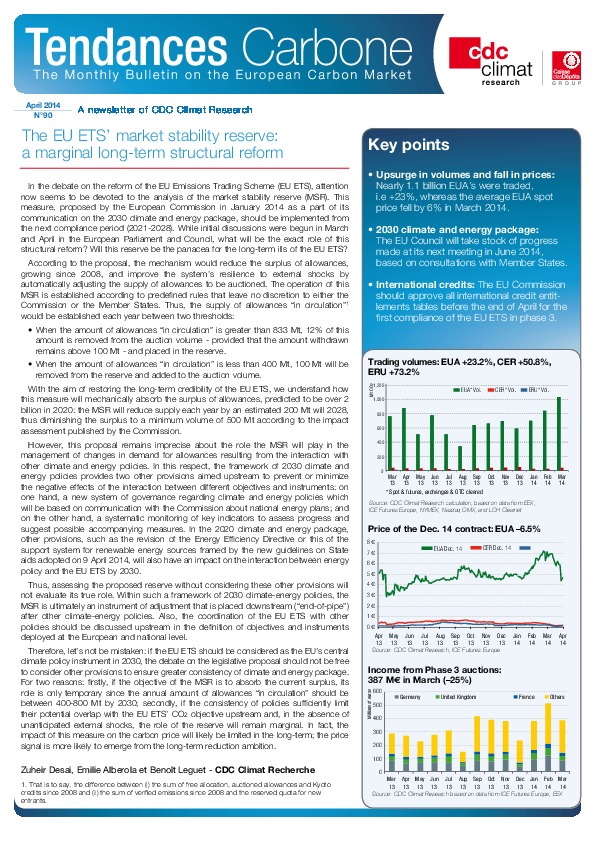The EU ETS’ market stability reserve: a marginal long-term structural reform
![]() Upsurge in volumes and fall in prices: Nearly 1.1 billion EUA’s were traded, i.e +23%, whereas the average EUA spot price fell by 6% in March 2014.
Upsurge in volumes and fall in prices: Nearly 1.1 billion EUA’s were traded, i.e +23%, whereas the average EUA spot price fell by 6% in March 2014.
![]() 2030 climate and energy package: The EU Council will take stock of progress made at its next meeting in June 2014, based on consultations with Member States.
2030 climate and energy package: The EU Council will take stock of progress made at its next meeting in June 2014, based on consultations with Member States.
![]() International credits: The EU Commission should approve all international credit entitlements tables before the end of April for the first compliance of the EU ETS in phase
International credits: The EU Commission should approve all international credit entitlements tables before the end of April for the first compliance of the EU ETS in phase

